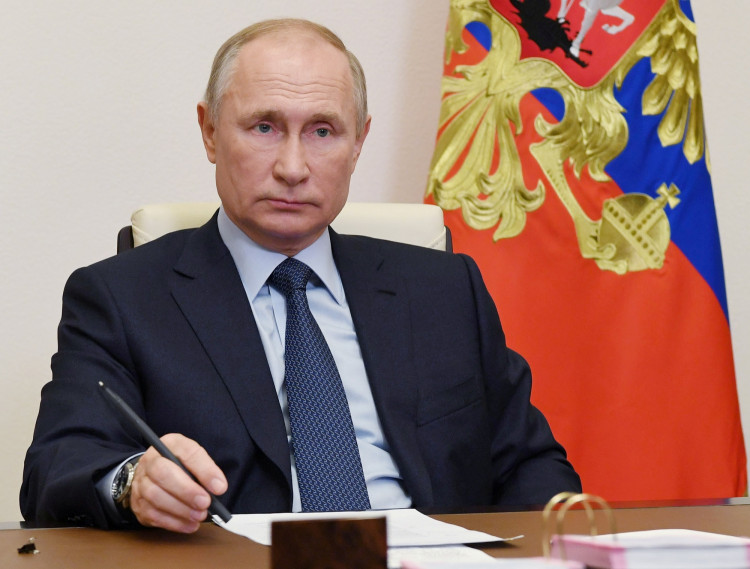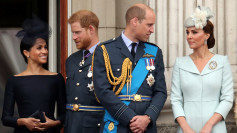Russia and Ukraine have escalated their conflict with a record-breaking exchange of drone strikes, marking one of the most intense periods of drone warfare since hostilities began. On Saturday night, Russia launched 145 drones against Ukraine, the highest number ever deployed in a single nighttime attack, according to Ukrainian President Volodymyr Zelensky. In a simultaneous escalation, Ukraine carried out its largest drone assault on Moscow since the start of the war.
The Russian strike utilized Shahed drones, cost-effective, one-way attack devices often referred to as "fire and forget" drones due to their preprogrammed flight paths. Zelensky reported that Russia's recent surge in aerial attacks has also included over 800 guided bombs, roughly 600 strike drones, and nearly 20 missiles of various types over the past week. Ukraine's Air Force stated that it managed to intercept and destroy 62 of the 145 drones. Meanwhile, 67 Russian drones reportedly veered off course across different regions in Ukraine, and ten exited Ukrainian airspace, heading towards Moldova, Belarus, and Russia.
Ukraine, in turn, targeted Moscow with 34 drones overnight, leading to flight disruptions at two of the capital's major airports. Russia's Ministry of Defense reported that all drones directed at the Moscow region were intercepted by its air defenses, with incidents reported in Ramenskoye, Kolomna, and Domodedovo. Moscow regional governor Andrey Vorobyov confirmed that shrapnel from downed drones ignited fires at two homes in Ramenskoye, injuring a 52-year-old woman who was hospitalized with burns. Temporary flight restrictions at Domodedovo and Zhukovsky airports were lifted after two hours, according to state media outlet TASS.
happy Sunday motherfuckers!
Today's drone attack on Moscow was the largest since the beginning of the full-scale war pic.twitter.com/1sapb1Z9rq — Cuntasorus Flex #muga NAFO (@warrior_na92602) November 10, 2024
The weekend's escalation signals a notable shift in drone warfare tactics for both nations. The previous largest drone attack on Moscow occurred in September, when Russia reported downing at least 20 Ukrainian drones. That attack resulted in one fatality near Moscow and led to the temporary closure of three of the city's four airports.
The intensifying drone conflict comes amid broader geopolitical tensions. On Saturday, Russian President Vladimir Putin cemented a new pact with North Korea, committing mutual military support should either nation face attack. The agreement, the strongest bond between Moscow and Pyongyang since the Cold War, has heightened concerns about further escalation in Ukraine and potential ramifications for the Asia-Pacific region. Reports indicate that North Korea has deployed at least 3,000 troops to Russia, complicating the conflict further.
The toll of continued drone strikes has been severe. U.K. Chief of Defense Staff Tony Radakin told the BBC that Russia experienced its highest monthly casualty rates in October since the full-scale invasion began in February 2022, averaging 1,500 troops killed or wounded daily. "Ordinary Russians are paying an extraordinary price," Radakin remarked, underscoring the steep cost of Moscow's territorial gains.
Both sides reported casualties and damage over the weekend. In the Moscow suburb of Ramenskoye, five people were injured by drone debris, according to local authorities. In Belgorod, near the Ukrainian border, a drone strike on an apartment building claimed one life. Meanwhile, Russian drone attacks in Ukraine's southern port of Odesa and the northeastern Kharkiv region left five civilians injured, including children.
The humanitarian crisis is worsening. Ukrainian drones reportedly ignited a fire at an arms depot in Russia's Bryansk region near the Belarusian border. Ukraine's General Staff released images of the fire but provided limited verification. Separately, Russia's emergencies ministry reported a large warehouse fire outside Moscow, though its connection to Ukrainian drone strikes remains unclear.
As violence intensifies, Ukraine's allies continue to push for sustained support. Radakin called on Western partners to stand firm in backing Ukraine. However, some U.S. political circles have suggested potential pressure on Kyiv to pursue peace negotiations. Amid these developments, the Kremlin voiced cautious optimism regarding President-elect Donald Trump's impending presidency, with spokesman Dmitry Peskov noting, "He does not talk about a desire to inflict a strategic defeat on Russia, and this favorably distinguishes him from the current (U.S.) administration."






